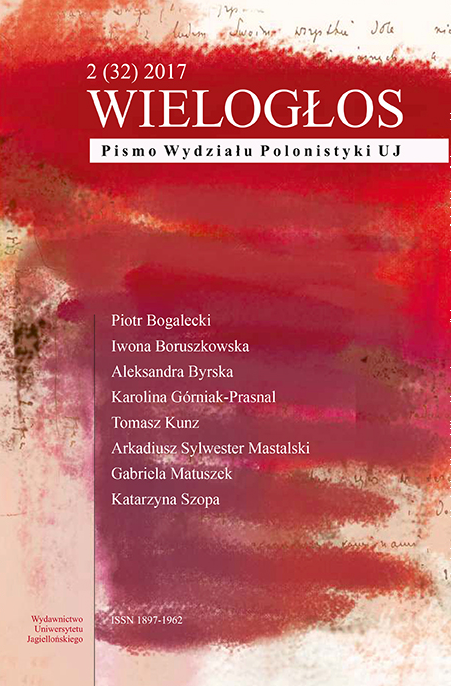O ironii w Biesach Marii Komornickiej
On Irony in Maria Komornicka’s Biesy
Author(s): Gabriela MatuszekSubject(s): Poetry, Metaphysics, Recent History (1900 till today), Polish Literature, 19th Century
Published by: Wydawnictwo Uniwersytetu Jagiellońskiego
Keywords: irony; early modern irony; Biesy; Maria Komornicka;
Summary/Abstract: The article addresses a topic not researched before, that is, the presence of irony in Maria Komornicka’s poem Biesy. The author shows that, in the nooks and crannies of the text, which is imbued with autobiographical frankness and untamed directness, there may lurk irony, and its “cracked” subject, full of ambivalence and disharmony, sometimes adopts a pose which after Kierkegaard may be described as an “infinite absolute negativity.” A subtle network of ironic tensions is analyzed: between the Self and the world; the speaking subject and the subject spoken of; the Self and Non-Self; and the Prototype (Prototyp) and the Not-Fully-Born (Niedorodzona). The author emphasizes the fact that – contrary to Kierkegaard’s ironic subject – Komornicka’s heroine remains alienated not only in her worldly existence: even the transcendent being appears as an unfinished supplementation of a defective spirit. Thus, the existential irony extends to metaphysical irony. Komornicka’s poem reveals not only the core of a traumatic existential experience, but also the ironic face of nothingness which underlies the world.
Journal: Wielogłos
- Issue Year: 2017
- Issue No: 32
- Page Range: 41-51
- Page Count: 11
- Language: Polish

